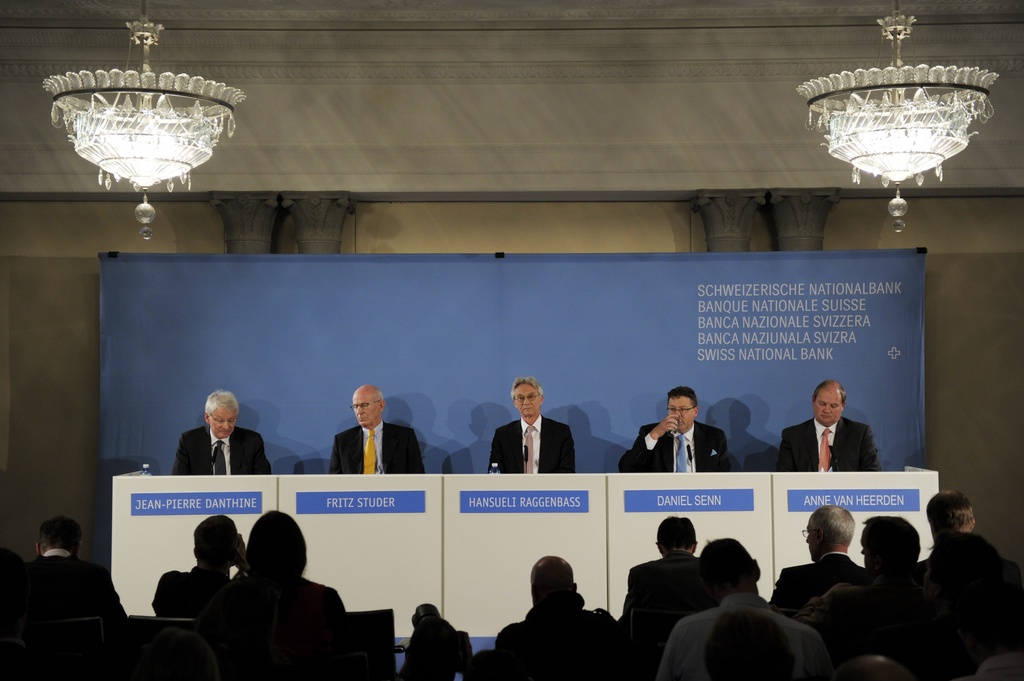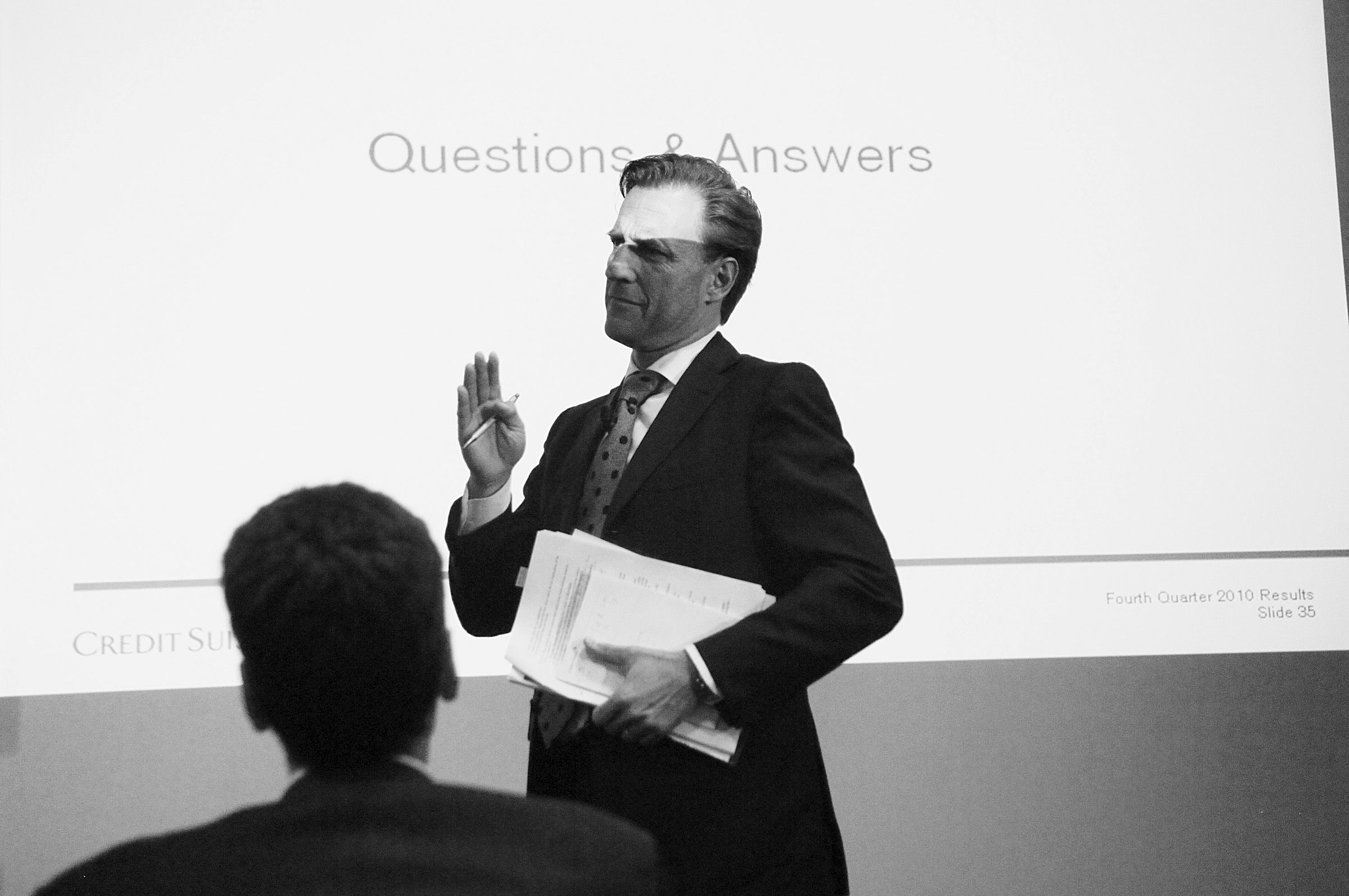Former president defends Blocher

Former Swiss President Micheline Calmy-Rey has defended as “normal” Christoph Blocher’s role in passing on to her details of the private banking transactions of then Swiss National Bank president Philipp Hildebrand last December.
“It was normal that he should have come to see me. When someone has information of this kind, he must be able to bring it to the attention of the president,” Calmy-Rey told Le Matin Dimanche.
“I immediately checked the veracity of his [Blocher’s] statements. If they were correct, we had a real problem. As it turned out to be. I therefore spoke with Mr Hildebrand and informed the cabinet.”
Stolen by a bank employee and passed on to members of the Swiss People’s Party, the banking data revealed the Hildebrand family had made profitable foreign currency transactions around the time Hildebrand was implementing the SNB’s controversial decision to attach a floor of SFr1.20 to the euro to the Swiss currency in August last year.
Accused of insider trading, Hildebrand maintained he had no prior knowledge of the currency trade which he said his wife had carried out. Unable to prove it however, he was forced to resign in January.
Blocher is one of four people being investigated by police over accusations they violated banking secrecy laws in the Hildebrand affair.
Blocher has rejected the accusations, claiming he acted only as a “postman”. On December 5, he forwarded the information he had about Hildebrand’s currency dealings to Calmy-Rey.
In her first public comments about the affair on Sunday, Calmy-Rey also revealed that Blocher came to her with the information shortly after having been sworn in as a member of Parliament.
This is significant as the question of whether Blocher is shielded from criminal charges by parliamentary immunity is currently being considered by two parliamentary committees following a request from the Zurich prosecutor’s office that his immunity be lifted.
“He informed me just after he was sworn in. I think it is correct and logical that an elected official could talk to the President rather than to the press when the reputation of Switzerland is at stake. It was my duty to look into it,” Calmy-Rey said.
“I must say I was disappointed by this affair. I supported Philipp Hildebrand for the vice presidency of the Financial Stability board with the help of [German Chancellor] Angela Merkel. A few weeks later, everything fell apart. It was therefore important to ensure that the credibility of Switzerland was not tainted.”
At the end of 2011, a rumour reached the media that SNB chairman Philipp Hildebrand had used his insider knowledge for personal gain.
First the media reported that the financial affairs of the Hildebrand family had been investigated by auditors and given the all clear.
Then details started emerging about an advantageous currency trade made by Hildebrand’s wife Kashya – a Swiss-American dual national. The implication was that she had inside knowledge about the bank’s plans to weaken the franc.
This was followed by revelations in some Sunday papers that the source of the information about the Hildebrands’ accounts was Christoph Blocher, former justice minister and deputy chairman of the right wing People’s Party. Then it turned out that he’d got the information from an employee of Sarasin Bank.
The next bombshell: the Weltwoche weekly magazine, which is close to the People’s Party, announced that it had “proof” that Philipp Hildebrand himself, not just his wife, had indulged in insider dealing.
Hildebrand spoke to the media on January 5, 2012, denying any wrong doing and completely rejecting calls for his resignation.
On January 9 Hildebrand faced the media again, this time to resign after realising he could not prove that he had been unaware of his wife’s transactions.

In compliance with the JTI standards
More: SWI swissinfo.ch certified by the Journalism Trust Initiative












You can find an overview of ongoing debates with our journalists here . Please join us!
If you want to start a conversation about a topic raised in this article or want to report factual errors, email us at english@swissinfo.ch.